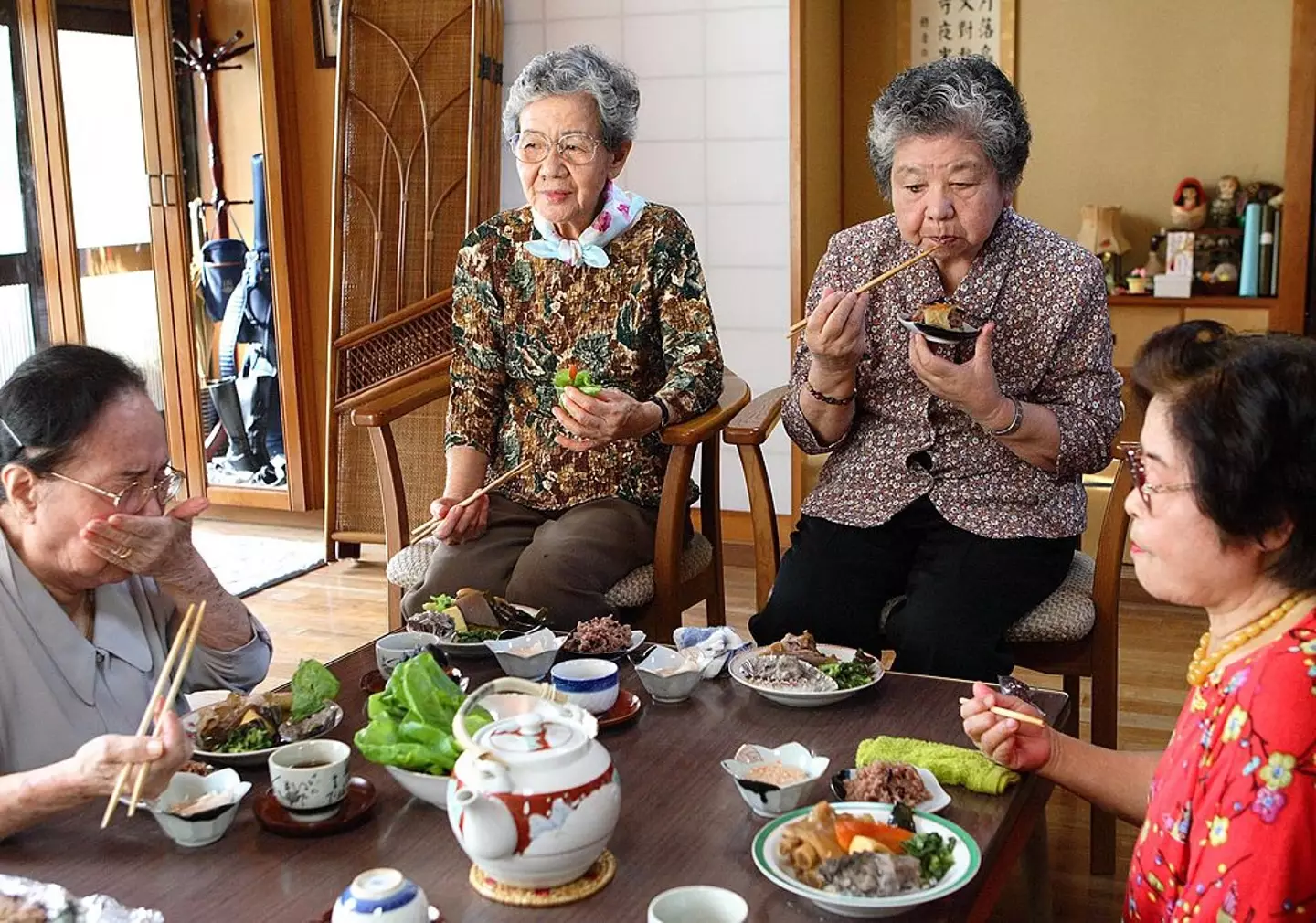
We live in a world that loves a quick fix. From juice cleanses to carb bans, there’s always another ‘revolutionary’ diet claiming to be the secret to health and longevity.
However, while the rest of the world has been chasing the next superfood or supplement, one culture has quietly been living longer and healthier for generations, and it has nothing to do with kale smoothies or calorie counting.
Instead, it’s about something far simpler: knowing when to stop eating, and has been summarised in a fascinating write-up by Aisling Pigott, a lecturer in dietetics at Cardiff Metropolitan University.

Advert
In Japan, particularly in Okinawa, people have long followed a Confucian teaching known as 'hara hachi bu': a phrase that literally means to only eat only ‘until they’re around 80% full’, as Pigott describes it.
Not to be confused with Japan’s washoku diet, and instead of restriction or dieting, the idea is about moderation, awareness, and respect for the body’s signals. Pigott explains: “Some of the world’s healthiest and longest-living people follow the practice of hara hachi bu — an eating philosophy rooted in moderation.”
This ancient approach is starting to gain modern attention, often framed as a clever weight-loss hack. But Pigott warns against reducing it to that, saying: “While hara hachi bu might emphasise eating in moderation and stopping before you’re full, it shouldn’t really be seen as a method of dietary restriction. Rather, it represents a way of eating that can help us learn to have awareness and gratitude while slowing down at mealtimes.”
Studies looking at people who practise hara hachi bu have found that it can lower total calorie intake, reduce long-term weight gain and BMI, and even encourage healthier meal choices: more vegetables, fewer refined grains. Still, the real power of the philosophy lies in its mindset.

It shares much in common with ‘mindful’ or ‘intuitive’ eating, both of which aim to reconnect people with natural hunger cues and reduce emotional eating.
That’s particularly relevant in today’s distracted dining culture. Around 70% of adults and children use digital devices while eating, a behaviour linked to eating habits like overeating and poorer diet quality.
Pigott says that as a dietitian, she often sees people ‘put food on a pedestal, obsess over it, talk about it, post about it – but so often, we don’t actually enjoy it.’ Hara hachi bu, she explains, encourages people to slow down, savour their food, and ‘reconnect with our bodies, support digestion and make more nourishing food choices.’
There’s no need for perfection, just presence. Hara hachi bu isn’t a diet, and it isn’t about guilt or deprivation. It’s a concept of balance. Pigott also explained: “Importantly, hara hachi bu is not meant to be a restrictive eating approach. It promotes moderation and eating in tune with your body – not ‘eating less.'”
